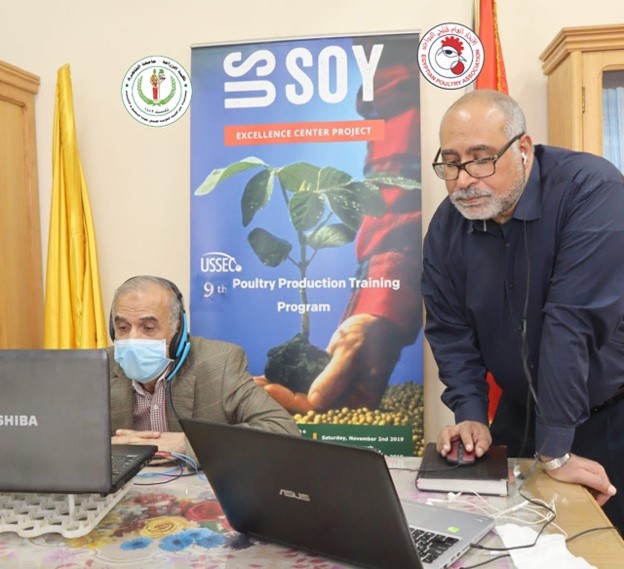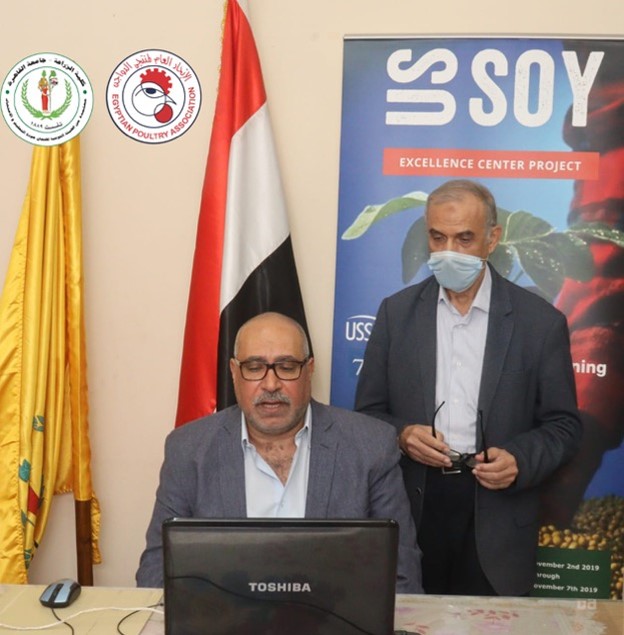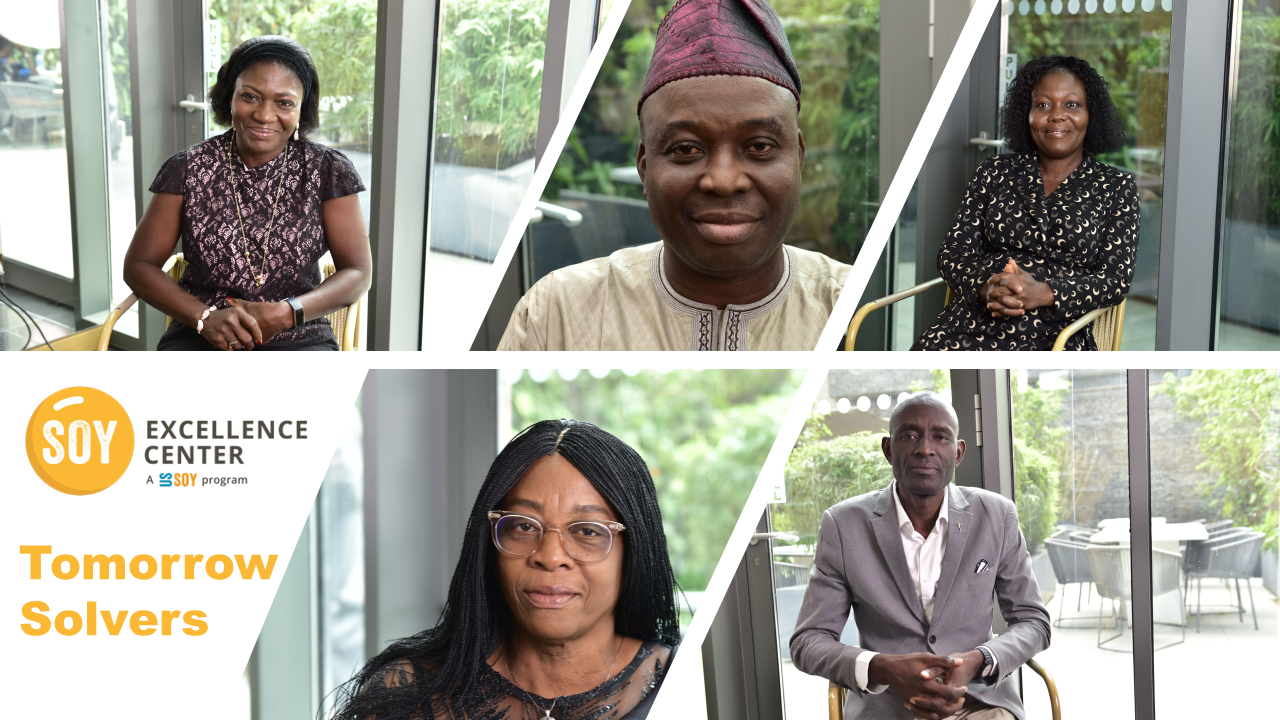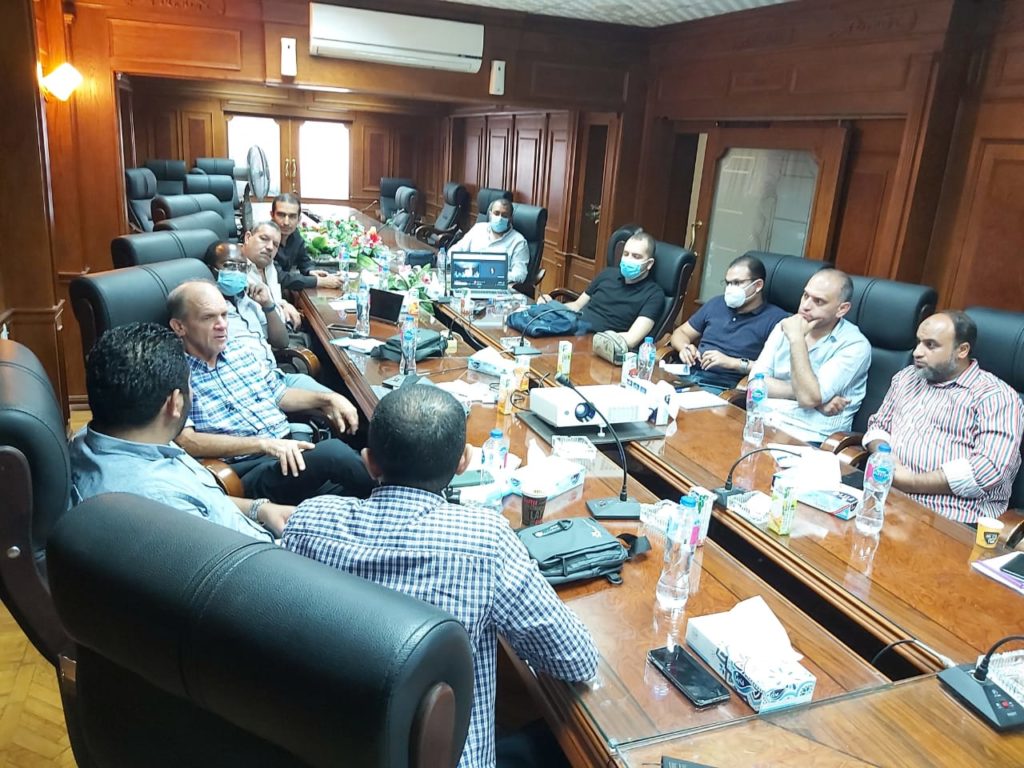By Julie Deering
Share
By Julie Deering
Share
Known as “Africa’s boom town,” Lagos, Nigeria, is forecast to become the world’s largest city by 2100. With a population of 15.3 million people, the city has a remarkable trend of population growth and urbanization but lacks the infrastructure to meet the needs of its people.
Last week, leaders from Nigeria and the United States met in Atlanta, Ga., U.S.A., to discuss and enhance collaboration to enable the country’s industry to meet the country’s vision for nutrition and food security.
Nigeria Now, hosted by the U.S. Soybean Export Council, welcomed His Excellency, The Honorable Ben Ayade, Governor of the State of Cross River, and leaders from Nigeria’s poultry industry to explore partnership synergies ahead of the International Production & Processing Expo, which brought more than 8,000 people from the international poultry industry together.
While Nigeria is known for being a fashion, tech and creative hub in Africa, nutrition and food security remain a concern. According to the OECD, in 2020, Nigeria recorded 1.55 million food insecure people, including 660,000 people facing an emergency situation.
On average, Nigerians consume protein equivalent to about one chicken per year, highlighting the need for access to more affordable protein. This protein deficiency manifests itself in many other areas, which need to be addressed sequentially for sustained national development.
Jim Sutter, CEO of USSEC, set the tone for the conference.
“We have a shared priority of enabling nutrition and food security for families, communities and countries around the world, and more specifically for today, to increase Nigerians access to healthy and nutritional food,” Sutter said.
Based on local needs and trends, for soy specifically, the gap between the imbalance of supply and demand is forecast to increase, according to Dr. Ayoola Oduntan, of Amo Byng, LTD, who predicts an overall deficit of more than 1.6 million metric tons of soybeans by the year 2030. This is after taking into consideration implied productivity and yield gains.
“We hope Nigeria will take a diversified and multi-faceted approach to achieving food and nutrition security,” added Kevin Roepke, USSEC regional director for South Asia and Sub-Saharan Africa. “Local food and soy production is and will remain critically important, and we invite leaders to consider complementing their local supply with high quality imports to most effectively and sustainably meet nutrition needs.”
To address these needs, the nation’s government and industry leaders are encouraged to collaborate to help establish supply chains, and the confidence in them for capital and resource allocation. These supply chains must first be developed and trusted before these fundamental needs and demands can be met.
“As USSEC collaborates with agronomy and poultry industry leaders and government officials in Nigeria, we applaud the partnerships that are in place today and hope that Nigeria Now will help provide a pathway for the accelerating food and nutrition security through collaboration and the identification of additional synergies and strengths,” said Roepke.
Speakers at Nigeria Now included members of the Nigerian food industry and U.S. Soy value chain, government officials, academia, non-governmental organizations and others. Panel discussions examined needs, challenges, and what collaborative efforts can be furthered to advance food security.
One such collaborative effort is the Soy Excellence Center (SEC) initiative in Nigeria.
“The SEC is an investment that brings partnerships and local expertise to the table to build Nigeria’s young leaders’ expertise in the food industry,” Roepke explains. “The SECs take a holistic approach at bringing together a broad array of expertise and input from leaders in Nigeria’s food and feed supply chain. While relatively new, this initiative is moving the needle in advancing Nigeria’s workforce training and development, aimed at the protein value chain.”
Sutter echoed the commitment to collaboration.
“We want to build on our growing partnerships in 2022 to help Nigerian leaders meet their food and nutrition vision for the citizens of their country,” Sutter said. “Having these discussions together opens the doors for continued conversations and more collaboration.”
USSEC is a dynamic partnership of U.S. soybean producers, processors, commodity shippers, merchandisers, allied agribusinesses, and agricultural organizations; and connects food and agriculture industry leaders through a robust membership program. USSEC is farmer-funded by checkoff funds invested by the United Soybean Board, various state soybean councils, the food and agriculture industry, and the American Soybean Association’s investment of cost-share funding provided by U.S. Department of Agriculture’s (USDA) Foreign Agricultural Service (FAS).
274 Comments
Leave A Comment
You must be logged in to post a comment.






I applaud SEC initiative.
The partnership becoming stronger over the years. I want to say big thank you for giving opportunities to many of us to have access to news here.
This USSEC’s collaborative approach showcases a strong commitment to promoting U.S. soybeans globally and especially Nigeria.
The impact of USSEC especially in Nigeria has improved the performance of poultry production in respective Farms of production. Hence the applictaim of this accrued knowledge and fostered and increase the level of yield/output
Great
MUY BUEN TRABAJO EN QUIPO, CON LOS CONOCIMENTOS DE TODOS HACEMOS UN MEJOR DESEMPEÑO EN ESTE MUNDO DE ALIMENTOS BALANCEADOS PARA ANIMALES
Exce3llent
Nigeria has the capacity to do a lot more
Excellent task
Excellent task
Nigeria has the potential to be self-sufficient in food production, which would enable it to attain Food Security sooner than expected.